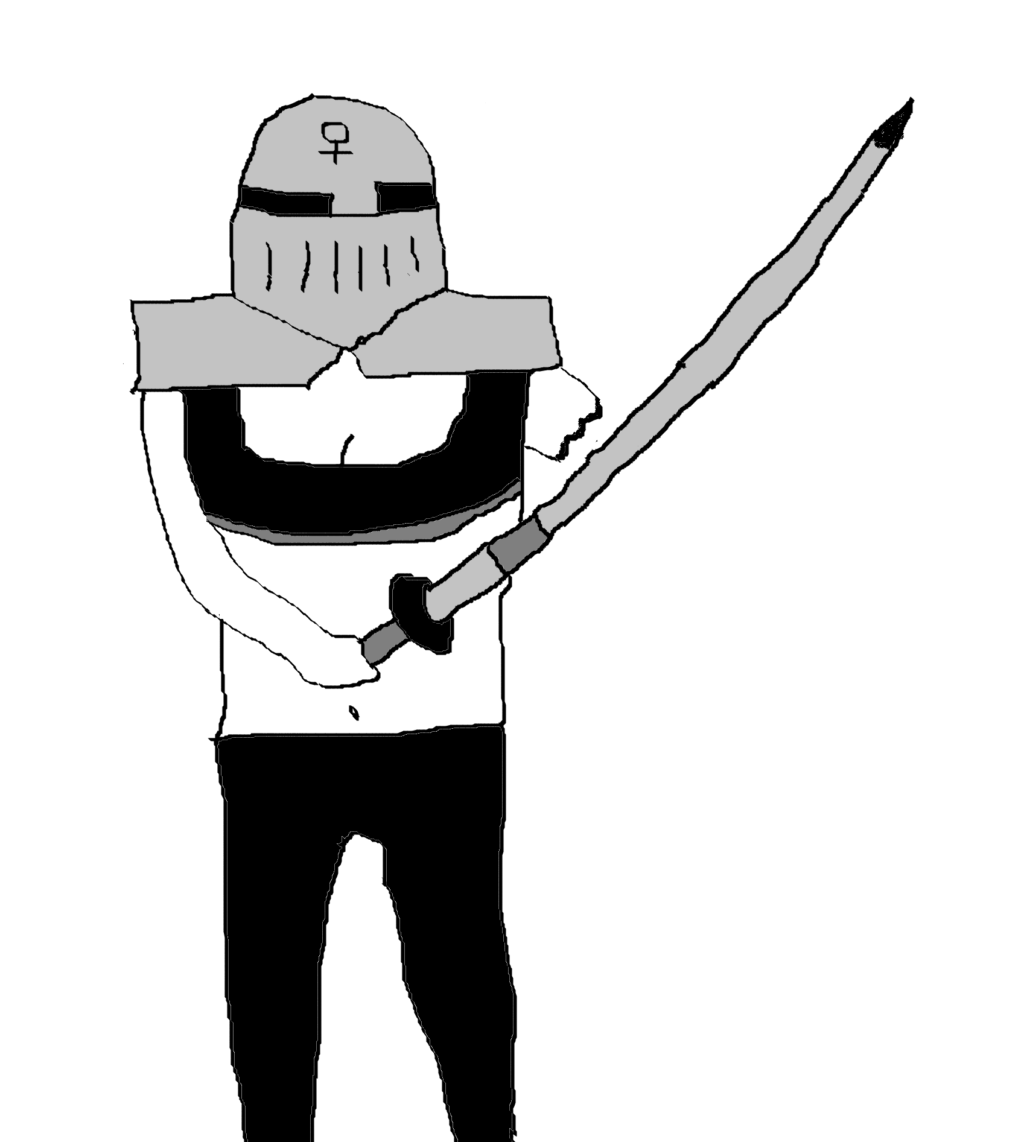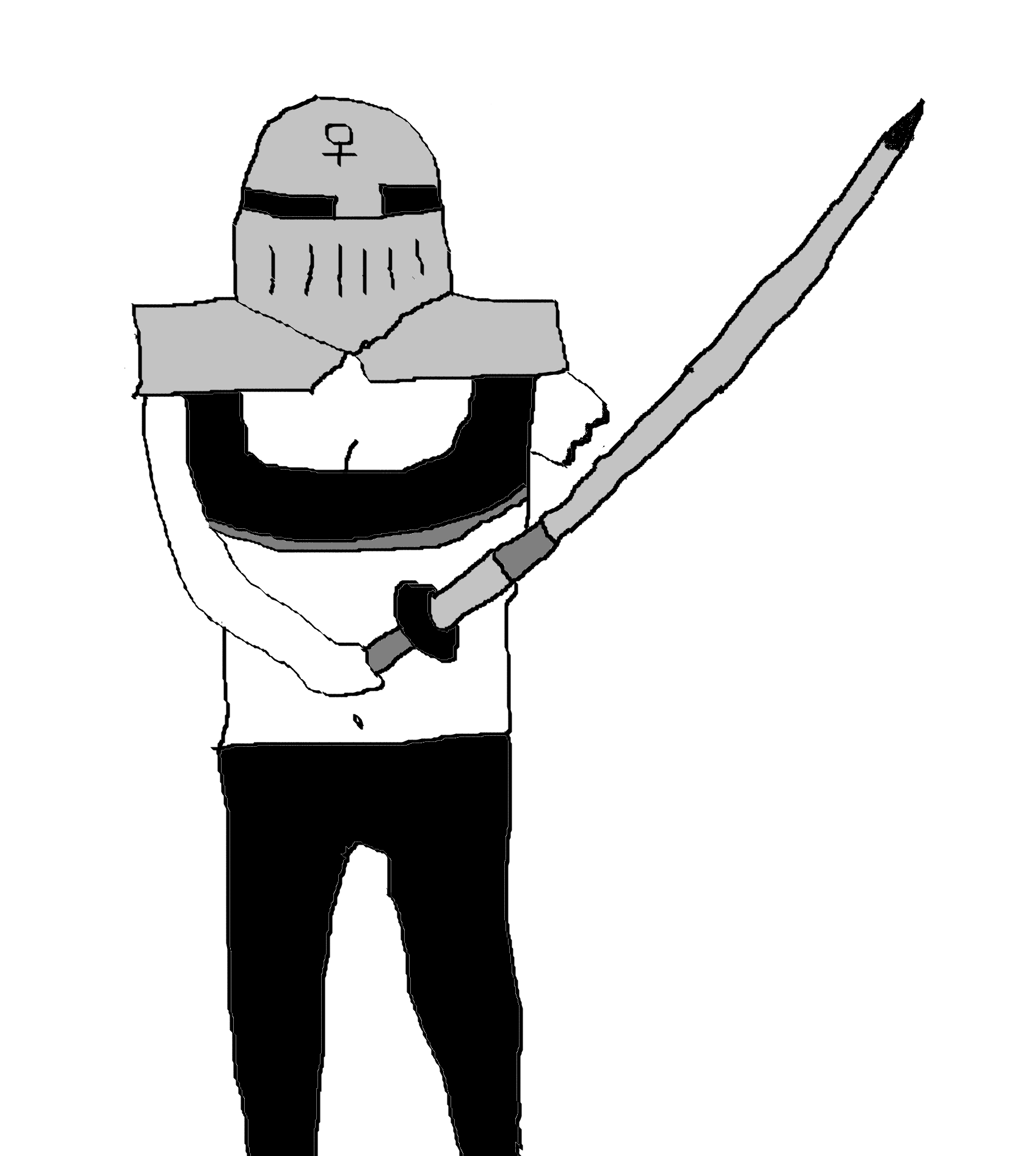
An Unkindness of Ravens / Johnny Joinville
An Unkindness of Ravens
When I see the woman power-walking down the center of the jogging path
In neon-pink cushioned athletic shoes, every step
Smooshing the little tongue of honeycomb air pockets, working the golden wedge
Like a bellows, and yoga pants so tight
I know how her vulva is set,
I can’t tell if she can see out the paraboloid slit
Between the brim of her Giants cap and pleated cotton surgical mask
And veer to the right, close enough to the retaining wall
That bounds the oval-shaped clay running track
I can touch one of the squares composing the waffle-textured ribbon.
Straining against the shiny black synthetic fabric poured
In the vertex of her hips,
Her pubic mound like a face gasping for air inside a plastic bag,
Like a thoroughbred bridling and champing the bit behind the starting gate,
Like the neglected dog kept tied up in a white-trash yard,
Barking at everything, the rope snapping loud enough to make you wonder
If the dog is going to hurt itself at the same time
You feel your throat tighten and touch it with your hand in sympathy,
Like an attempt to express the inexpressible,
Like a Roman legionary behind his shield, anticipating the sting of battle,
Like a soul trapped tormented in madness,
Like the eyes of a schizophrenic—fearless, open, and blind,
Like a vented nautical signal light transmitting Morse code,
Like a cross held up before a vampire,
Like a relay baton in the hand of the passer’s outstretched arm, who’s yelling “up!”
Like the talisman a primitive uses to ward off evil,
Like she’s holding out for anyone to take the only possession of value she has
So she’ll never be hostage to the vagaries of fate,
So she’ll never hear a voice tell her they took something else,
Like every step brings her closer to a resolution….
A woman willing to give up that much of her most intimate anatomy
Yet unwilling or unable
To make eye contact with a total stranger
From the confines of a vision slit as narrow as a medieval helmet
In a park filled with ravens at seven am
Has lived in a brutal world so long it has started living inside her
I realize as I’m left with the familiar sensation
Of the tip of a jousting lance driven deep into my shoulder,
The wind knocked out of me
In narrow lane marked off with garlands on a grassy tiltyard,
The sound of galloping hooves receding in both directions, and I’m once again alone,
Building a little dam of rocks and sticks
In the sluice cut in the edge of the granite pan of the drinking fountain,
A raven in the branches overhead
Calling to her thirsty mate who comes swooping in
Like bunting from the leafy canopy over the jogging path,
Letting him know there’s water even now
Trickling down the front of the fountain and through the grate at the bottom.
Johnny Joinville
Took himself for a ride
to a town
out
in the sticks,
implementing a plan
to become the ideal knight and crusader,
doubling down
because what else is there to do
after you’ve conned yourself, drunk too much
of your own tea,
bought in
to the hype you wrote,
and the nonsense you spewed on behalf
of some woman’s husband,
vainglorious
idol worship, building up a myth
until you
believe in it.
Couldn’t say “no”
to her,
and couldn’t
admit his feelings:
wool-eyed and friend-zoned,
he simped hard and
wrote fan
fiction woven in so-called
objective reporting and frontline dispatches
borne by a relay of couriers
making the journey on horseback, who cleaved to the coast
where the Mediterranean bordered Levant,
plotting a course like a shudder of fear up the back of the fertile crescent,
or carving a slice off a third quarter moon
from the wrong direction,
then zigzagged
more or less straight
on smooth, rounded stones
of elliptically crowned
and well-draining, paved Roman roads
through occupied lands of the Byzantine Empire
and over the Balkans and Alps,
carrying news
from the doomed crusade.
As the King’s counselor-confidant,
Johnny described in obsessive detail His Majesty,
Louis the Saint’s, manner and speech,
an example to others
on how to lose
gracefully
after you go in to battle
with troops that outnumbered the enemy
six-to-one, and get ransomed off for one-third of the national GDP.
Johnny’s account and description of Louis
in war and captivity came to be known as a book in the aggregate
more about Johnny
than Louis, a weak and submissive man,
who was raised by a dominant, iron-willed woman,
Blanche of Castille, who married his father,
known as the Lion, at twelve, and then found herself
widowed when Louis was just a boy,
at the dawn of his manhood. Proceeding to act as the regent,
she fended off vassal revolts
and contrived to negotiate palace intrigue,
instilling in her a disdain, if not outright disgust on a visceral level,
for power and politics. No surprise, then,
she jealously guarded his innocence
both in worldly affairs and affairs of the heart.
After arranging for Louis to marry a girl from Provence, the Queen
worked to maintain an emotional glacier of distance
between the betrothed: time to themselves was restricted,
and after the marriage she left them alone for their conjugal duty
and little else, the union reduced to a contract for breeding
an offspring and heir to the throne. Despite her distaste
for conquest-crusade, in Louis’s absence his mother drained France
of its men and resources. As default hagiographer,
Johnny was faced with a conflict of passion and ethics. A Christian,
he’d taken an oath to a man who was all-but-in-name and-canonical status a saint,
but also the lesser man, swearing this oath out of love for Margaret,
the girl from Provence.
Sharing the hardships of war and captivity
magnified Louis’s virtues, many of which were too subtle for courtly life,
and entrenched a respect and affection in Johnny
in spite of a reptile-brain
inclination to think of the King with contempt
for his lack of an instinct to mate-guard. Taking his leave upon their release,
Johnny retreated and tried to escape the effect of his words,
an attempt that was certain to fail: reputation intact but in spiritual jeopardy,
Johnny looked in the mirror and momma’s boy, Louis, stared
back, and wagged the proverbial feminine finger of scold, judging and chastising Johnny,
possessed as the countenance was by the spirit of Blanche of Castille.
Like a fury who hounded Orestes, the widow emerged,
but no temples of wisdom
dot the French
countryside, only broken
down farmers
contending with shrill, shrewish wives.
Johnny curled up in the fetal position and dreamed of a cleansing,
a purge of his sexual instincts: most blessed of all
is the soul of the person unborn, of the heart that still beats with the dream
of the double-sex, before
methods of classification determine the gender,
but after the fact, like the bed of Procrustes, to fit us like cats into boxes,
the bed or the measure of sex not without but within,
submitting our deepest, primordial selves to these confines of leftover cardboard,
inseparable from internalized ideology, hard-wired….
At the clinic the doctor
diagnosed Johnny with gender-dysphoria, prescribed
androgen-blockers and therapy.
In no time at all Johnny’s called Jenny and seen around
town wearing
high-waisted jeans tucked
in drab olive-green Wellington boots
and sporting a rainbow mom-bob
that makes her look like an LSD-flavored
cozy’s stuck on her head. Arrested and charged
with indecent exposure to children,
Jennny’s on house arrest and awaiting trial
when the district attorney searches her pen drive
and finds pics of Jen with a Great Pyrenean Mountain dog.
She’s now doing ten years
in the Charleyville Women’s Correctional Center,
where she gardens and grows medicinal herbs, and weaves tapestries
showing scenes from medieval manuscripts,
using punch cards she made on a Jacquard loom,
and the convicts in B wing call her Our Lady of the Karens.
